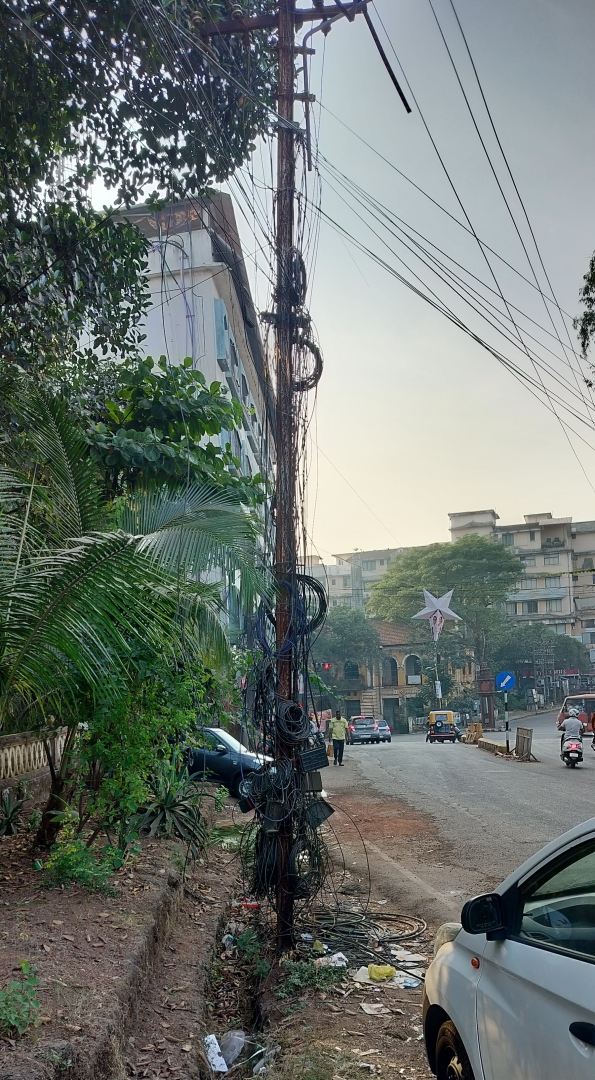Statement comes after drive to clear cables in Panaji

A cluster of cables tangled around an electricity pole at Althinho in Mapusa creates both a public nuisance and an eyesore. Similar scenes can be spotted on nearly every pole in the town.
Photo Credits: Agnelo Pereira
MAPUSA
After taking decisive action to address the issue of dangling overhead cables in the capital city, the Goa Electricity Department took a step back and stated that there is no blanket decision to remove such cables across the State.
According to Chief Electrical Engineer Stephen Fernandes, the department’s recent action in Panaji was a localised measure to address specific challenges faced by field staff.
“There is no such move to remove hanging data cables across the entire State. In Panaji, ducts are available for these cables, yet service providers have used our poles to pull overhead cables. This creates issues for our staff while working on the poles, so we removed them. However, this approach cannot be applied uniformly across Goa,” Fernandes explained.
The issue of haphazardly hanging TV and internet cables has become a pressing problem across the State, with service providers frequently using public property, such as electricity poles, to hoist their cables.
These unregulated practices not only mar the aesthetic appeal of cities but also pose significant safety risks, particularly if the cables come into contact with live wires.
On Saturday, the electricity department took action in the Patto area of Panaji by cutting down several such cables.
Several professionals and residents reported internet service disruptions and criticised the suddenness of the action.
The power department reportedly received numerous calls from residents affected by the internet shutdown.
Fernandes acknowledged the inconvenience caused, stating, “Cutting the cables is not a complete solution, as it creates problems for people dependent on internet services. A more systematic approach is needed.”
The department has highlighted the dangers posed by these dangling cables, which can become hazardous if they come into contact with high-voltage electric wires.
A senior engineer noted that most service providers fail to comply with safety standards and often do not seek proper permissions before using electricity poles for their infrastructure.
“Things can go awry when television cables and electricity lines run parallel. Service providers need to adopt safer and more regulated practices,” the engineer added.
Concerned citizens and officials alike are calling for stricter regulations and enforcement against unauthorised cable installations.
Many believe that service providers must be held accountable for endangering public safety and violating government property rules.
The department has urged operators to use existing ducts and follow prescribed safety standards.
However, Fernandes reiterated that the immediate priority is resolving issues for field staff while minimising public inconvenience.
For now, Panaji remains the only city where such action has been taken, with no plans to extend it statewide.